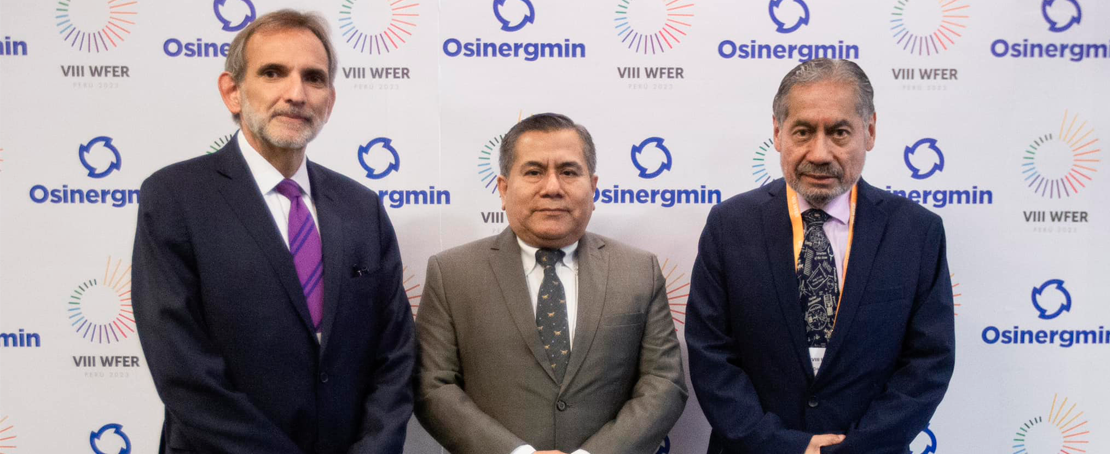Jorge Seminario and Carlos Pascual: the extraordinary speakers who praised the VIII WFER 2023

The scientific and intellectual debate could not be absent from the VIII World Forum on Energy Regulation, held in Lima, Peru, in August. Jorge Seminario and Carlos Pascual shared their studies and experiences, in their respective fields, before more than a thousand attendees from the 5 continents of the world.
Carlos Pascual, expert in geopolitics and former US ambassador to Ukraine and Mexico, gave the keynote address "Geopolitics, energy transition and challenges for markets and regulators." The international analyst gave an account of how the geopolitical world affects the energy transition and presents multiple challenges. However, "opportunities are opening up such as the carbon capture market, green hydrogen, the increased demand for metals for electrification and the sale of carbon credits."
Later, Pascual mentioned that the current challenge throughout the world is the energy transition, since zero greenhouse gas emissions have been established for the year 2050 (COP26, Glasgow). The former diplomat considers that a great deal of innovation is required on the part of governments and private companies.
In his turn, Jorge Seminario presented the master lecture called "Electrification of vehicular transport: the transition from fossil fuels to rechargeable electric batteries."
Dr. Seminario is a Peruvian scientist based in the United States. He is the Fox Professor at Texas A&M University and his research activities include quantum computational science. Furthermore, he has developed software to obtain with chemical precision the behavior of electron transport.
In his presentation, Seminario detailed, in a didactic way, the nature and operation of conventional batteries. Then he specified the process for electric motors and lithium rechargeable batteries. In this scenario, the scientist explained that the energy used by a conventional fuel-powered car is much higher than that of an electric car: “The electric vehicle (200Wh/km) is more efficient than the gasoline vehicle (1708Wh/km ) for the same kilometer covered”.
At another time, the seminar explained that the amount of lithium (for batteries) that is going to be required will be immense, and it will be increasingly in greater demand in the world, so there is a lot of interest in the production of this material. So, there is a need for an energy transition: "For environmental and economic reasons it is important to develop batteries for vehicle transport that are efficient and light."
Finally, he argued that it is imperative to lower the temperature of the planet. "Changing the internal combustion of engines for an electric system is a viable option to achieve this goal," he concluded.
